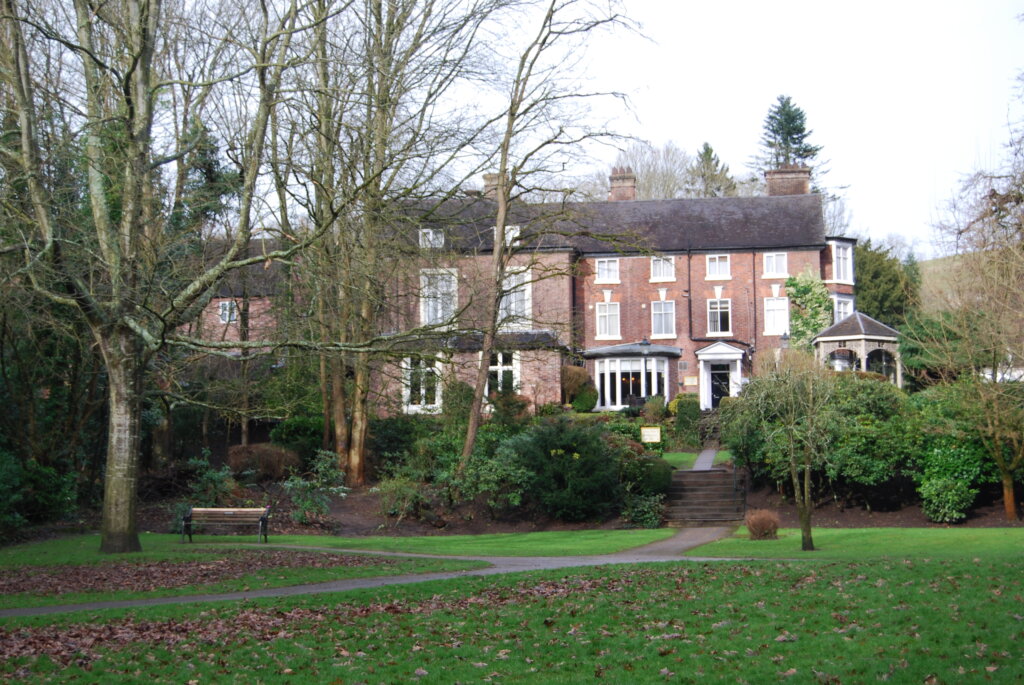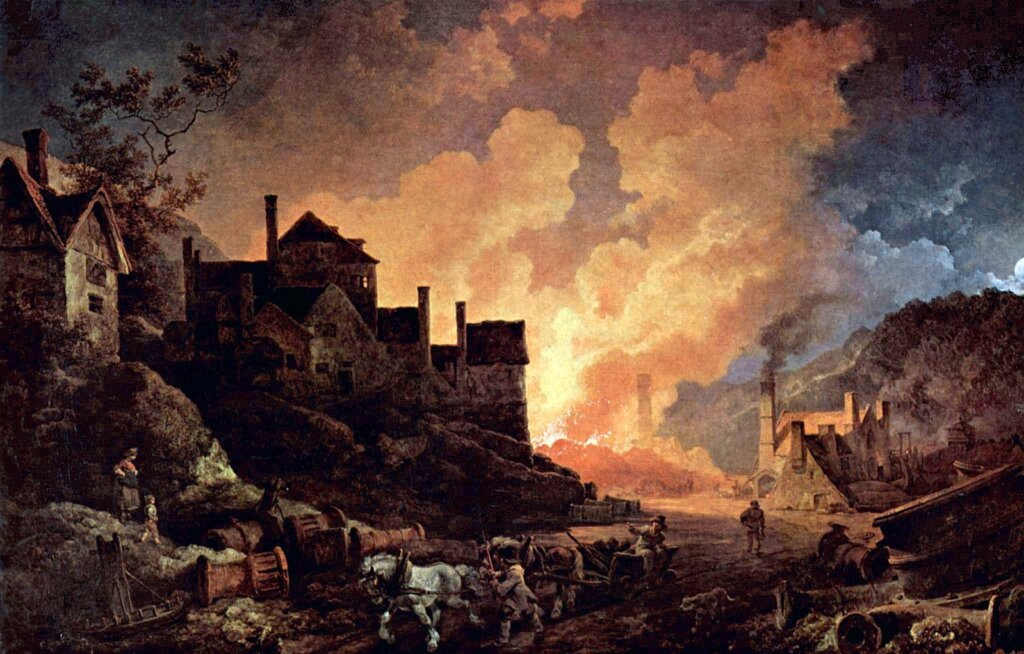The homes of the rich in Ironbridge
When we went to Ironbridge we stayed at the Best Western Valley Hotel. It’s a very short walk from the bridge and I’m happy to recommend it. (No they haven’t paid me.) Significantly, as far as this week’s blog post goes, it was built in 1757 as Severn House, the home of George Goodwin.

Goodwin was a master collier and a partner in the company that owned the Bedlam furnaces, one of the furnaces that eventually formed part of the Coalbrookdale Company. The remains of the Bedlam furnaces are still around today on the road out of town on the other end from the bridge. They feature in this famous painting of Coalbrookdale in its prime.

Sadly we don’t have any photos of the remains because it was dark when we explored them on our way back to the hotel, but the point is that we were walking home and we were back very quickly. The owner of the forge lived a short walk from his business.
By the 19th century, the house was owned by the Maw family. Arthur Maw set up the tile works in Jackfield. (The hotel displays some lovely decorative tiles on the walls of the public areas.) It’s a little further away than the Bedlam furnaces, but we covered it in the same walk. When Arthur Maw owned it, it employed 180 people. It was a significant business and, again, the owner lived within walking distance.
Abraham Darby (the one we mentioned last week, who was the first Englishman to smelt using coke) owned the Ironbridge Iron Works and could, we can reasonably assume, have built his home anywhere. Instead, he built it on the hill just above the works where the sound of the machinery would have been easily heard day and night. (Smelting is a 24 hour a day activity: once you are at the right heat, it is economic madness to let the plant cool and start again the next day.)
What is interesting about Ironbridge is that masters and workers lived cheek by jowl. The workers homes are not miserable shacks but well-made houses (although, in fairness, any miserable shacks will have collapsed long ago). Ironbridge represents an early stage of the Industrial Revolution when workers were often skilled artisans and the owners lived and worked alongside them.
